2112
Revamp Your Online Store: Top 5 Ecommerce Platforms for Success in 2025
13 Feb, 2024
7 min read
2112
13 Feb, 2024
7 min read
Table of content
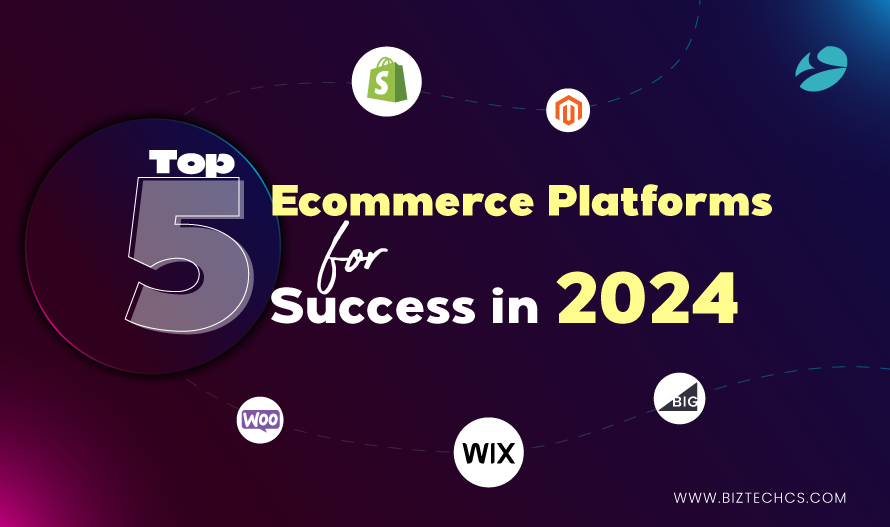
Do you own an online store? Or, are you stepping into the dynamic and competitive landscape of the eCommerce industry as a beginner? Regardless of your situation, you can’t deny the need for the best eCommerce platform for your online store.
With the right platform in place, you can reduce your development costs and efforts and improve your customers’ overall experience. From elevating your checkout pages to incorporating advanced security practices, from designing intuitive UI to creating personalized user experiences, eCommerce platforms are the basis of these transformations.
Therefore, picking the best platform for eCommerce websites appears as a challenge. You have to consider your specific requirements, platform features, customizability, developer availability, and budget constraints before you decide on it.
It should also help you avail of appropriate eCommerce development services as you would look for developers skilled in specific tools and technologies.
This blog post is here to introduce some of the most popular eCommerce platforms of 2024 that can up your eCommerce game. So, take a look!
A comprehensive software tool that enables you to create and manage online stores effortlessly are known as eCommerce platforms. These software solutions help you set up a digital front from where your customers can check your products (name, description, images, videos, price, etc.) and purchase those securely.
Besides developing an eCommerce website or app, they also facilitate product management, inventory management, payment processing, order fulfillment, and customer service.
An eCommerce platform aims to provide optimum experience to businesses so they can set up and start selling products effortlessly. It makes buying and selling easier and helps you reach a broader section of the audience.
Now that you are familiar with the term ‘eCommerce platforms’, let’s look at some key features that make these tools extraordinary and invincible.
Different eCommerce platforms come with distinguished features that make them unique. While most of the platforms possess the most popular ones, some platforms are known for their unique and innovative features.
It is up to you to look for the features you want in your eCommerce platform and decide accordingly. But to do so, you must learn about the features that make these eCommerce platforms superior. Here’s a list of features that most businesses look for while choosing a custom eCommerce development tool.
Customer Support and Community: An active community and good customer support are essential ingredients for your business. It ensures you can reach out to them for any unprecedented events or issues or find solutions immediately.
There are multiple kinds of eCommerce platforms with unique features, functionalities, and benefits. While one platform may seem like the best for your unique business requirements, the other may lack in some respect.
Thus, you need to explore the various eCommerce platforms and find the one suitable for your online business. Now without further ado, let’s jump right to the list!
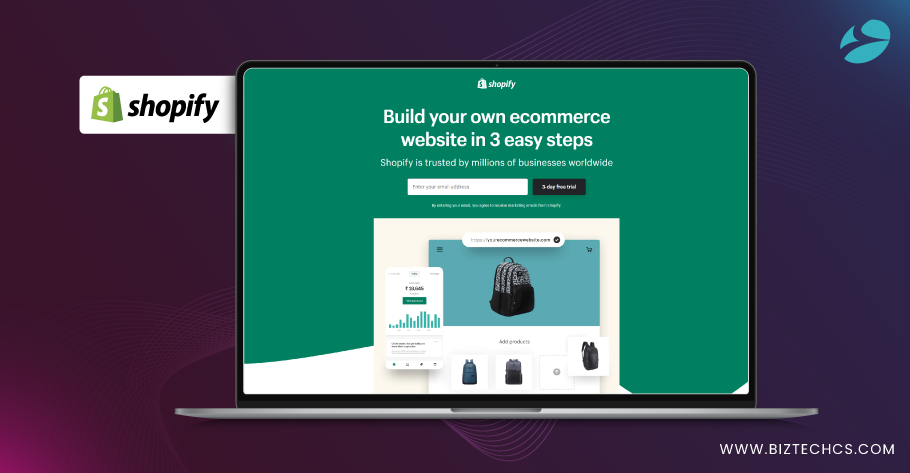
Shopify is a proprietary eCommerce software for online business owners and retail POS systems. It helps businesses set up an online store, sell products, accept payment across multiple sales channels, scale and grow – all in one place.
It’s a self-hosted solution, meaning you don’t have to take care of hosting independently. Your store will be hosted on Shopify itself. However, you can achieve better flexibility with headless Shopify in the picture. Avail of Shopify development services to further customize your Shopify store and sell faster and better.
Cost: There are multiple Shopify plans which you can choose from. Shopify Basic starts from $29/month, $79/month for Shopify, $299/month for Shopify Advanced, and $2,000/month for Shopify Plus users. You can also get a free trial and then pick a plan of your choice.
Features:
Use Cases: Abode, Aloha, Blenders Eyewear, Chubbies, Complex Networks
Suitable for:
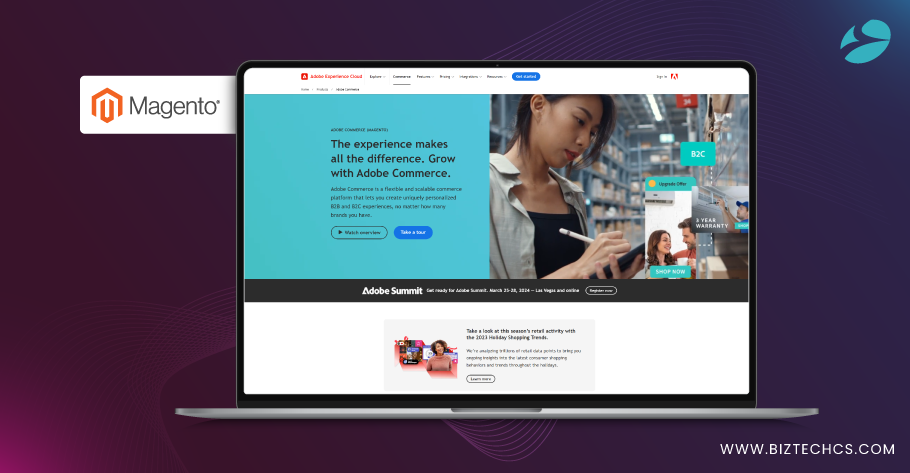
Founded in: 2008
Magento is a PHP-based eCommerce platform. It was acquired by Adobe Inc. in 2018 and is alternatively known as Adobe Commerce. The flexible and scalable platform is built to meet your unique B2B and B2C needs, regardless of your industry and business scale.
Unlike Shopify, working with Magneto is rather difficult as it requires technical proficiency. You may have to avail of Magento development services to build a unique store for your audience.
Cost: Free, if you use Magento open-source. Adobe Commerce licensing fee starts from $22,000 and Adobe Commerce Cloud licensing fee starts from $40,000.
Features:
Use Cases: Bulk Powders, Rossignol, Rite Aid, Lovesac
Suitable for:
Check the various features of these platforms and compare Magento vs Shopify to decide the suitable one for your business.
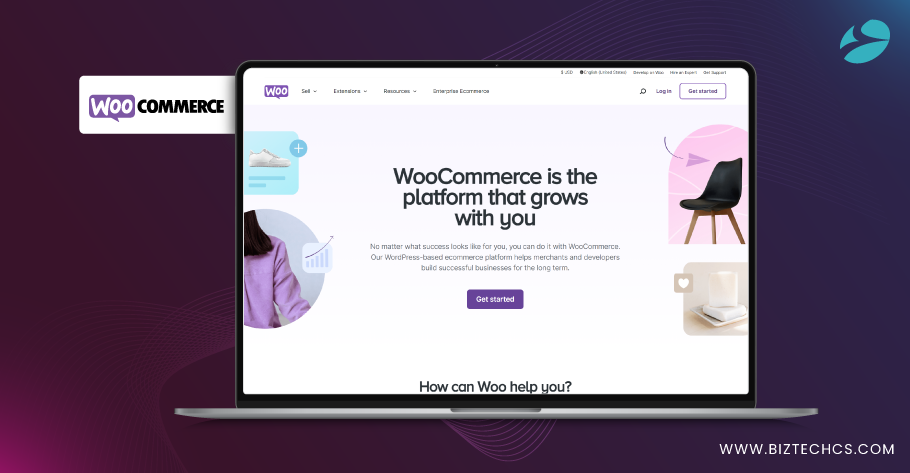
Founded in: 2011
WooCommerce is an open-source plugin launched for WordPress users. Due to its customizability and scalability, it is highly preferred for developing small and medium to large-scale eCommerce stores. Avail of WooCommerce development services to further custom-create your online store for your audience.
Cost: Free to download and use
Features:
Use Cases: Legal Network International, Financial Services Capital, Fox + Hare, WJD Exclusives
Suitable for:
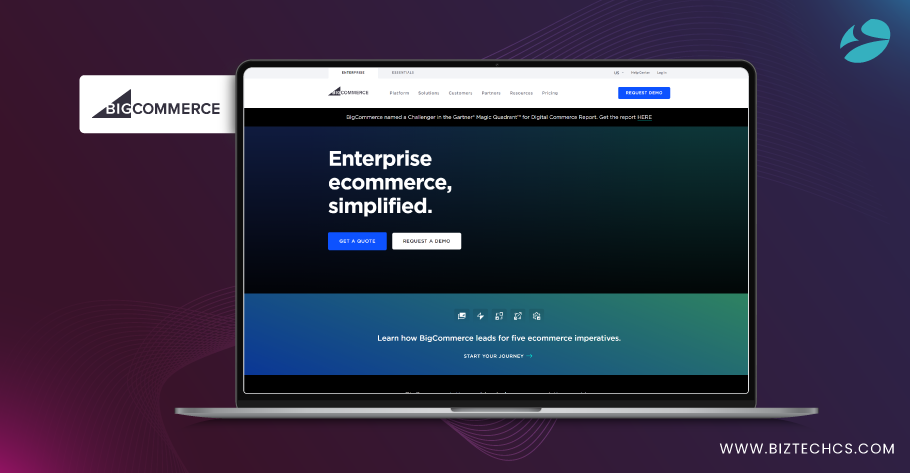
Founded in: 2009
The NASDAQ-listed eCommerce platform BigCommerce helps with store development and management. It is suitable for medium to Enterprise-level online stores. The software solution is feature-rich, scalable, and requires a steeper learning curve.
Cost: BigCommerce Standard plan starts from $29/month, BigCommerce Plus for $79/month, and BigCommerce Pro for $299/month. You also get a 15-day free trial, after which you can pick your preferred plan.
Features:
Use Cases: Skullcandy, Yeti Cycles, The Good and The Beautiful, Badgley Mischka
Suitable for:
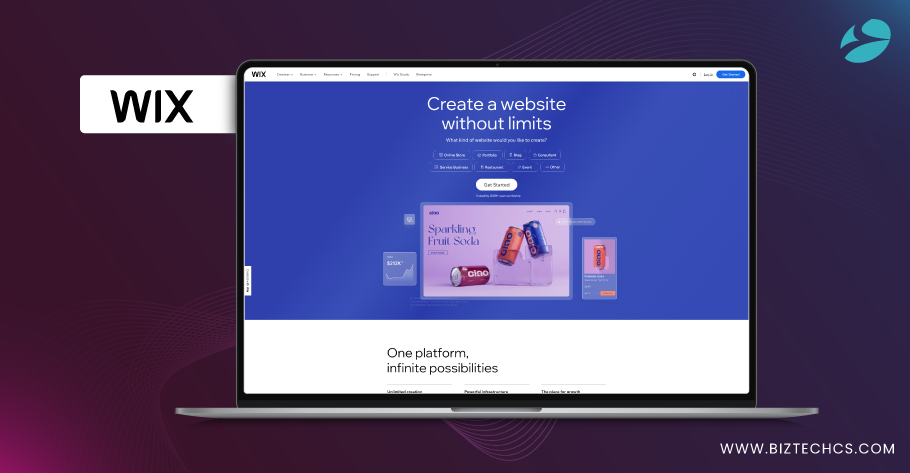
Founded in: 2006
Known as a modern, user-friendly eCommerce website builder, Wix is suitable for startups and small-scale businesses. With over 800 designer-made templates, you get a range of free and premium themes to build aesthetically pleasing eCommerce websites.
Cost: Get Wix Lite for $16/month, Wix Core for $27/month, Wix Business for $32/month, Wix Business Elite for $159/month, and Wix Enterprise for your custom needs
Features:
Suitable for:
Your hunt for best ecommerce platform for small business starts now! With all these sources of knowledge, you are equipped to pick a technology that speaks to you the most, your business challenges, and specific requirements.
Once you decide, you will have to look for technicians who can assist you in this venture. If you are looking for such technical professionals, BiztechCS might help you on that note. Whether it is custom eCommerce website development or eCommerce maintenance, our specialists can help you instantly.
Get in touch with our eCommerce experts today!
Whether you’re a budding entrepreneur, a small business owner, or managing a large-scale enterprise, the success of your online store hinges on choosing the right e-commerce platform. From Shopify’s unparalleled ease of use and customer-centric approach to Magento’s scalability and customization, WooCommerce’s WordPress integration, BigCommerce’s enterprise-grade solutions, and Wix eCommerce’s user-friendly design capabilities, there’s a solution tailored to every business need. With this guide, you can be informed and make sound decisions regarding your online store.
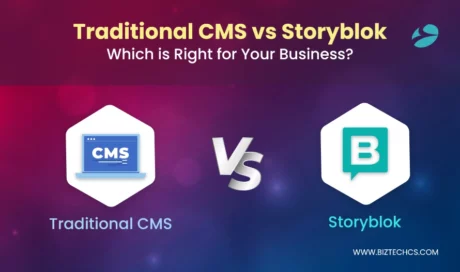
Storyblok
29228
By Devik Gondaliya
02 Apr, 2025
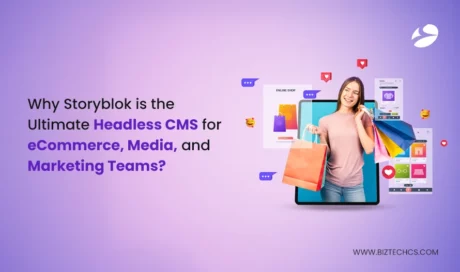
Storyblok
30197
By Devik Gondaliya
01 Apr, 2025
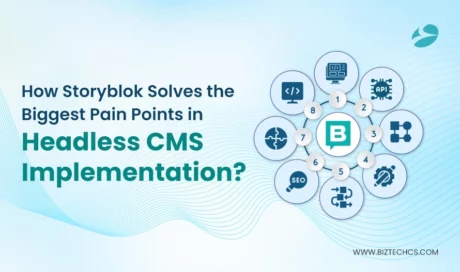
Storyblok
30845
By Devik Gondaliya
27 Mar, 2025